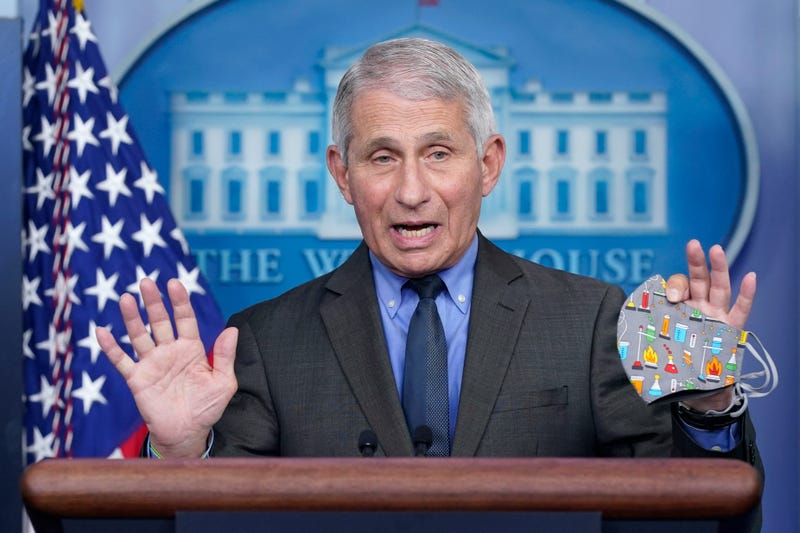
PHILADELPHIA (KYW Newsradio) — White House Chief Medical Advisor Dr. Anthony Fauci announced Monday he will step down from his post in December. A colleague spoke to KYW Newsradio about Fauci’s work in public service and his leadership throughout the COVID-19 pandemic.
“I’m sad to see Dr. Fauci step down. He’s a remarkable person,” said Dr. Paul Offit, director of the Vaccine Education Center at Children's Hospital of Philadelphia. The attending physician in CHOP’s division of infectious diseases, Offit says he has known and worked with Fauci for more than three decades.
“I was fortunate enough to be part of a team at the Children’s Hospital of Philadelphia that created the rotavirus vaccine, RotaTeq. So, for the 30-plus years I was working on that, the National Institutes of Health, under his guidance, was also working on rotavirus and a vaccine, so I came in contact with the NIH people on that, including Dr. Fauci, often, and it’s always been a pleasure.”
Fauci directs the National Institute of Allergy and Infectious Diseases, is chief medical adviser to the president, and leads a lab studying the immune system.
Offit says the country was lucky to have Dr. Fauci in a leadership position throughout the pandemic.
“As we’ve gone through this now over the last couple years, we have monoclonal antibodies, we have anti-virals, we have vaccines and those are sort or sophisticated concepts that he was able to explain to the public simply on how use them, when to use them,” Offit said. “I think, between him and the CDC, we were able to understand … what was going on.”
Fauci, 81 years old, has advised seven U.S. presidents, both Democrats and Republicans.
While the COVID-19 pandemic introduced him to millions of Americans, he's given straight-talk to the nation about numerous outbreaks including HIV/AIDS, SARS, pandemic flu, Ebola and the 2001 anthrax attacks.
Fauci became the face of the government response to COVID-19 as it hit in early 2020, with frequent appearances on television news and at daily press conferences with White House officials, including then-President Donald Trump. But as the pandemic deepened, Fauci fell out of favor with Trump when his urgings of continued public caution clashed with the former president's desire to return to normalcy and to promote unproven treatments for the virus.

Fauci found himself marginalized by the Trump administration, but he continued to speak out publicly in media interviews, advocating social distancing and masks in public settings before the rollout of the COVID-19 vaccines.
He was also the subject of political attacks and death threats and was given a security detail for his protection.
For all the rancor of the coronavirus pandemic, it wasn't Fauci's first run-in with an angry public. He became head of the infectious diseases branch of the National Institutes of Health in 1984 when the nation was in the throes of the AIDS crisis. Activists protested what they saw as government indifference and Fauci, frustrated at being unable to save dying patients in the NIH's hospital, brought them to the table in the hunt for treatments.
Later, under President George W. Bush, Fauci helped develop PEPFAR, the President’s Emergency Plan for AIDS Relief, to bring life-saving HIV treatments to developing countries. In 2008, Bush awarded Fauci the Presidential Medal of Freedom.


